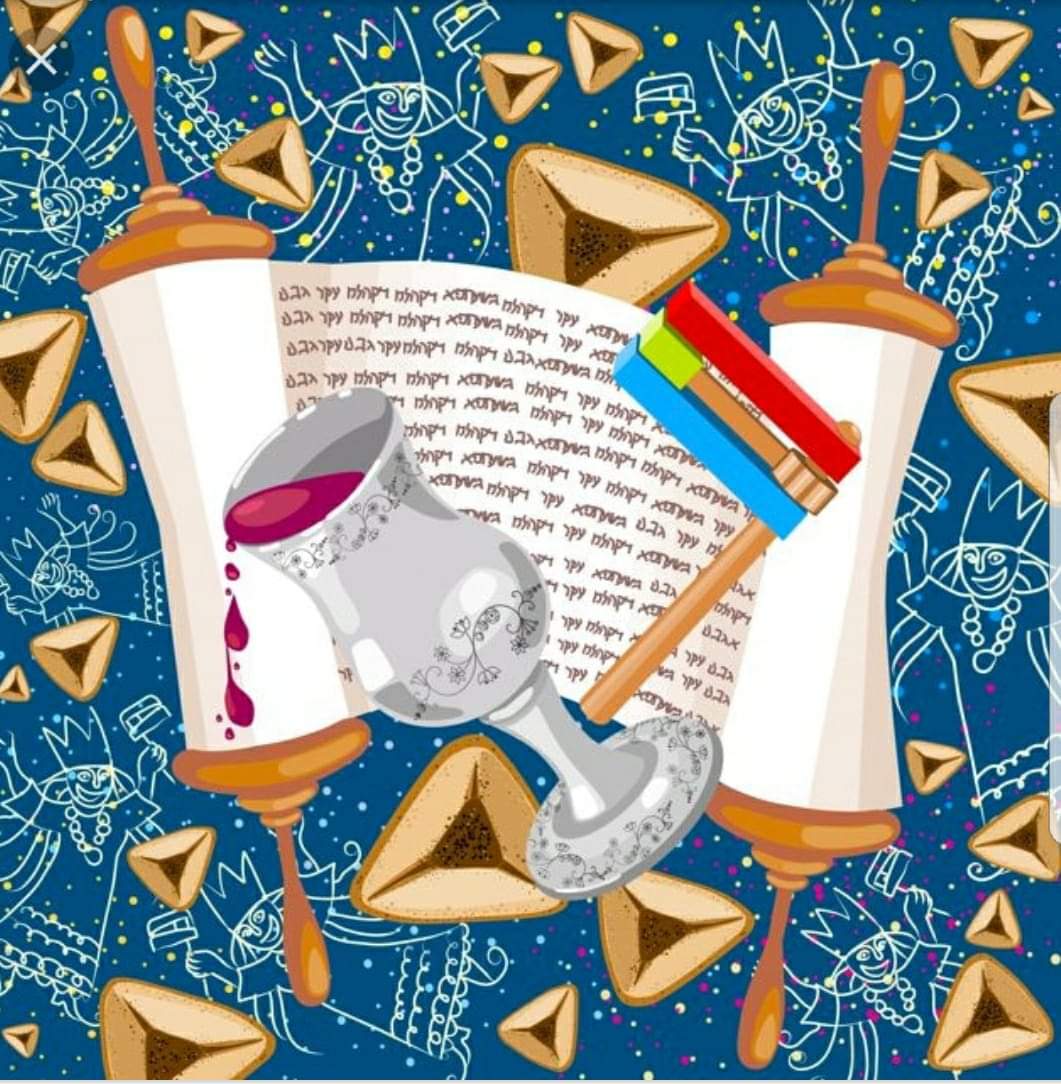Roger Froikin @rlefraim wrote, "חג הפורים שמח HAPPY PURIM
A COMMENT ON THE HOLIDAY OF PURIM
Today, we celebrate Purim with costumes and parties, parades, and celebrations. 1)

Roger Froikin @rlefraim wrote, "חג הפורים שמח HAPPY PURIM
A COMMENT ON THE HOLIDAY OF PURIM
Today, we celebrate Purim with costumes and parties, parades, and celebrations. 1)

What are we celebrating? We celebrate Jewish survival and the defeat of our enemies. We survived an attempt at genocide in ancient Persia, and our enemies fell, and we survived an attempt to kill us all in the 20th century, and we survived and our enemies fell. 2)
That are plenty of reasons to commemorate and celebrate.
It was not an easy task for our Sages when assembling the Tanakh somewhere in 200 CE from the many narratives that were available at the time. They chose to include some and to exclude some.
3)
Some books were included to teach lessons that the Sages believed were relevant for the future of the Jewish People, and to exclude those they deemed to not be relevant instruction.
4)
One of those they included was the Book of Esther, a story of a Jewish minority having to defend itself in the context of a political struggle in which one side scapegoated Jews as a tool in seeking influence, a topic that our Sages saw, clearly, as important at the time (and 5)
they were right). One they choose to exclude at the time was the Book of Maccabees which they saw as inflammatory during a time of Jewish vulnerability. 6)
And, there is the mystery as to why the Book of Esther that says nothing about religious belief, was included in the Tanakh. In fact, G-d is not mentioned anywhere in the story.
7)
Esther is portrayed as a woman completely assimilated to Persian culture, and Jewish identity in the book is an ethnic category rather than a religious one. 8)
Even the names, Mordechai and Esther may be originally names from Persian history of old gods, Marduk and Ishtar indicating how assimilated these people were. 9)
I can think of several lessons our Sages may have been considering valuable to teach us by this story, demonstrating their great wisdom, crucial for our survival, some of which some of us have not learned. (I am not discussing the various theories of the story’s origin). 10)
Lesson 1. Our fate is in our hands. It depends on our actions, not being passive and waiting to be saved by God or by a Messiah, though we believe in both. 11)
Lesson 2. Our survival in Persia came from the hands and efforts of people who were rather assimilated, people who were far from the most religious and most traditional, but who were loyal to their people and willing to make sacrifices and take changes for our people.
12)
One might draw a parallel with the modern era Zionist Movement being founded by assimilated, secular Jews, not the most religious or most traditional, who also were loyal and took chances for our future.
13)
The lesson is that all of us have value as Jews, a value in our national story and fate, and that those who reject Zionism, for example, on the grounds that it was founded by those who were assimilated and unreligious, are wrong.
14)
Lesson 3. The important lesson - to understand that the Jewish people, the ultimate dissenters in a world where most think power depends on uniformity and control, will always expect to be used as a scapegoat, to understand that Jewish communities in the Diaspora, 15)
or the entire State of Israel, will always receive the animosity of despots, of those who seek absolute power and control, and will always get attention out of proportion to our numbers. 16)
So, celebrate Purim. Enjoy Ozney Haman or Hamantaschen and all the traditions our people have developed in every area of the world. Enjoy blocking out the name of Haman, remembering all the other Hamans or people who have faced and survived.
17)
And understand that there will be more Hamans.
And, note that it is no coincidence that we read Parshat Zachor which reminds us to remember Amaleq not long before we read Megilat Esther. 18)
We need to always be alert to remember Amaleq and to see Haman and his sons wherever they may be as threats to our people. And believe me, they are often in the guise of those who claim to like us but whose actions make that a lie.
19)
And don’t be fooled by those who even claim to be Jewish who are more than willing to cast us aside. Look around the world. You’ll see a few.
We have survived. No other people have as much right to celebrate as do we. 20)
And, if there is ever peace — the Tomb of Mordechai and Esther is in Hamada, Iran, about 300 km west of Teheran." 21)